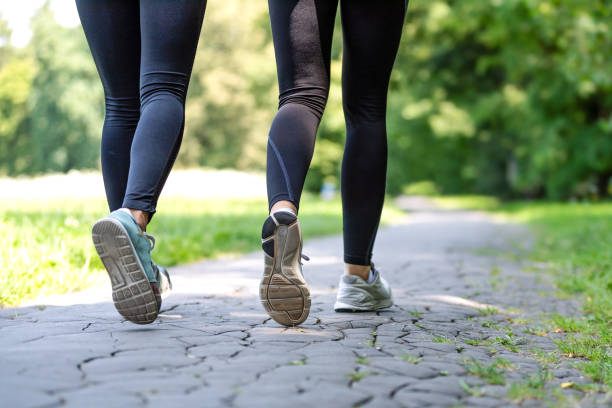Physical Health Benefits of Walking:
Cardiovascular Health: Regular walking is an excellent way to improve cardiovascular health. It helps strengthen the heart, lower blood pressure, and reduce the risk of heart disease. The rhythmic motion of walking enhances blood circulation, ensuring that oxygen and nutrients reach all parts of the body.
Weight Management: Walking is a low-impact exercise that can aid in weight management. It burns calories and contributes to a calorie deficit, which is crucial for weight loss. Additionally, walking can help tone muscles, particularly in the lower body.
Joint Health: Unlike high-impact exercises, walking is gentle on the joints, making it suitable for individuals of all ages. It helps improve joint flexibility and reduces the risk of conditions such as arthritis. The natural motion of walking also lubricates the joints, promoting their overall health.
Improved Posture and Balance: Walking regularly promotes better posture and balance. It engages various muscle groups, including those responsible for maintaining an upright posture. This can be particularly beneficial for individuals who spend extended hours sitting at a desk.
Boosted Immune System: Physical activity, including walking, has been linked to a strengthened immune system. Regular moderate exercise can contribute to better immune function, reducing the likelihood of falling ill.
Mental Health Benefits of Walking:
Stress Reduction: Walking, especially in natural settings like parks or green spaces, has been shown to reduce stress levels. The combination of fresh air, physical activity, and exposure to nature can have a calming effect on the mind, helping to alleviate stress and anxiety.
Mood Enhancement: Physical activity, including walking, stimulates the production of endorphins – the body's natural mood lifters. A brisk walk can leave you feeling more positive, energetic, and ready to face challenges.
Cognitive Function: Walking has cognitive benefits as well. It has been associated with improved cognitive function, including better memory and concentration. Regular physical activity enhances blood flow to the brain, promoting the growth of new neurons and supporting overall brain health.
Better Sleep: Engaging in regular physical activity, such as walking, can contribute to better sleep quality. It helps regulate the sleep-wake cycle and promotes a deeper, more restful sleep. However, it's advisable to avoid intense exercise close to bedtime.
Social Connection: Walking can be a social activity when done with friends, family, or even pets. Social interactions contribute positively to mental well-being by providing emotional support and a sense of connection. This social aspect of walking can combat feelings of loneliness and isolation.
Incorporating Walking into Daily Life:
Set Realistic Goals: Start with achievable goals, such as a 30-minute walk three times a week. Gradually increase the duration or frequency as your fitness level improves.
Make it Enjoyable: Choose scenic routes, listen to music, podcasts, or audiobooks, or walk with a friend to make the activity enjoyable. Enjoying the process makes it more likely that you'll stick to a regular walking routine.
Use Technology: Consider using fitness trackers or mobile apps to monitor your steps and set targets. Tracking your progress can be motivating and provide a sense of accomplishment.
Integrate Walking into Daily Routine: Look for opportunities to walk during the day, such as taking the stairs instead of the elevator, walking to nearby places, or scheduling short walks during work breaks.
Stay Consistent: Consistency is key to reaping the benefits of walking. Aim for regular, moderate-intensity walks to make it a sustainable part of your lifestyle.
the statement "I feel healthy, physically and mentally, for walking" highlights the holistic impact of walking on overall well-being. Whether you're aiming to improve cardiovascular fitness, manage weight, reduce stress, or enhance mood, walking is a versatile and accessible exercise that can be tailored to individual preferences and fitness levels. So, lace up your shoes, step outside, and embrace the many rewards that walking has to offer for both your body and mind.




Comments (0)